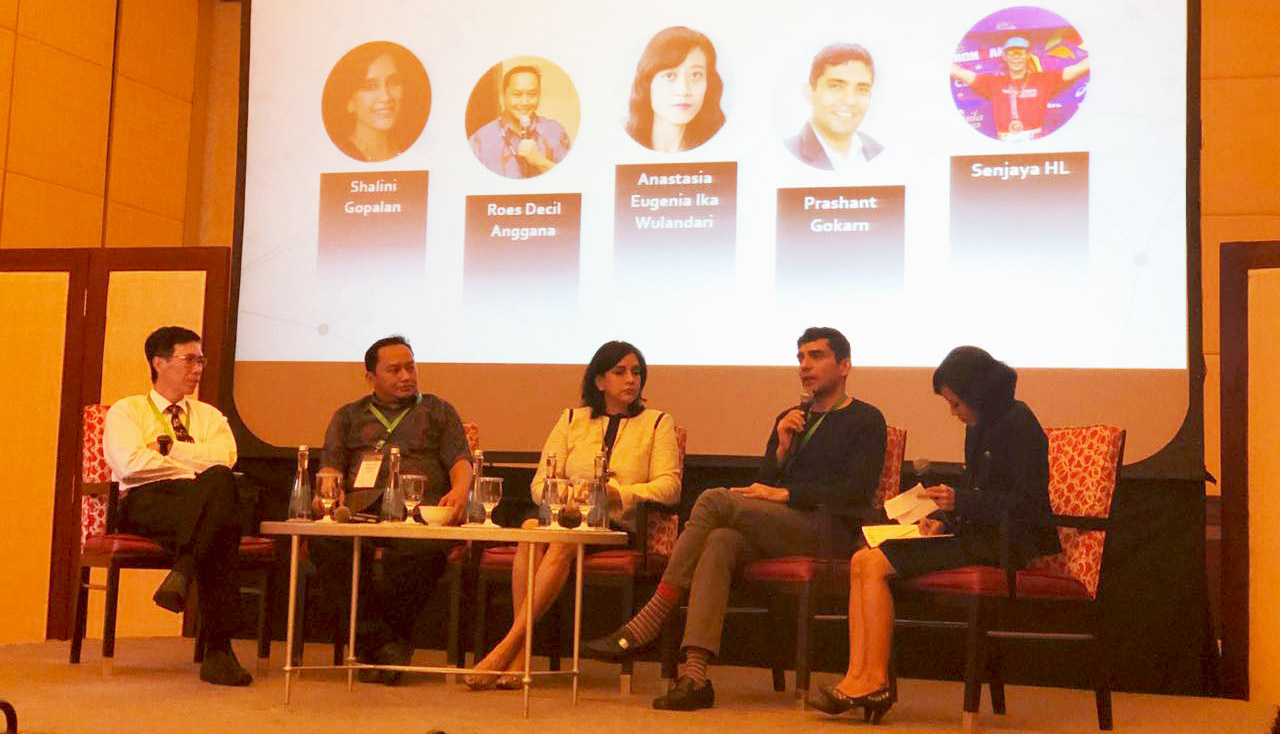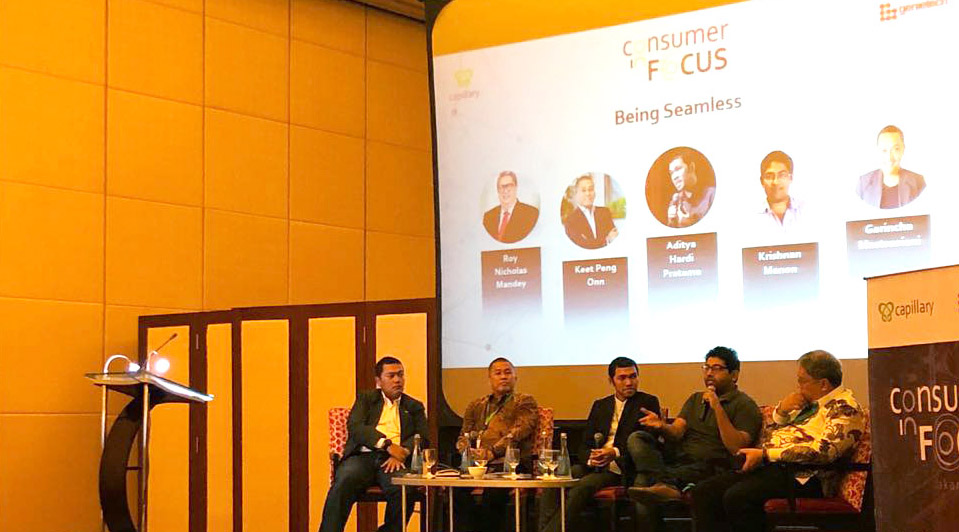Retail brands must adapt, evolve in this disruptive digital age
By Yunnie Marzuki August 21, 2018
- The integration between offline and online channels is necessary
- Indonesian retail players must utilise technology to build relationships

OMNI-channel CRM and e-commerce solutions provider Capillary Technologies hosted a summit entitled ‘Consumer in Focus’ in partnership with GenieTech in Jakarta recently.
The summit aimed to familiarise retail brands with the challenges of changing consumer dynamics and how they can best serve consumers by employing a robust omni-channel strategy and innovative technology.
Capillary Technologies president and managing director, Global accounts and Asia Pacific Abhijeet Vijayvergiya says, “Surrounded by technologies that can disrupt the sector, brands need to adapt and evolve to move these disruptions to their advantage. Brands have to introspect and become customer-ready to survive and flourish in the present environment.”
In a panel discussion, Indonesian Retailers Association (Aprindo) chairman Roy Nicholas Mandey said that most of the 600 members of the association are aware that customers are tech-savvy, smart, and conscious in purchasing products.
“As a brand, change in business models, especially in combining offline and online channels is important. Also, make sure the technologies provided are user-friendly and compatible with various devices, offer more product-related information online and build relationships. A smaller-sized store might create a bigger impact sometimes.”
He says that brands need provide convenience while not neglecting existing culture.
PT Digi Asia Bios co-founder and chief operating officer Prashant Gokarn explained the differences between millennials and the generations before them. Millennials might not have the same spending ability as older generations, but they believe in online reviews, and are more comfortable shopping at online stores on social media such as Instagram rather than websites.
“On the other hand, the older generations utilise digital platforms to discover information about the products as they find it more comfortable to shop at offline stores. That is why a balance between an offline and online presence needs to be struck.”
LoyaltyHub chief executive officer and founder Shalini Gopalan added, “Digital technology has helped brands to automate data input, build better personal relationships by knowing customers’ needs and preferences, and smooth out the goods delivery process.”
Connect seamlessly

Aside from using digital platforms to reach out to customers, it is also cricual to provide them with a seamless shopping experience.
HIM Hotels business development director Garincha Mastrosiani says, “In the local hospitality industry, customers always need to get personally served no matter how much they pay. So, it is important for us, as a brand, to maintain a personal relationship with them.”
In terms of technology, the hotel provides a website where customers are able to book, find information, and connect with customer services. It also enables them to communicate through Whatsapp messaging and uses social media as an advertising platform.
“We created a website instead of a mobile app because not everyone might want to install an app on their phones. So, utilising these technologies helps us to understand better who our customers are and to know our position in the market.”
Fabelio is a startup that provides a marketplace for selling and buying furniture. It also has eight offline stores to display their products.
Fabelio founder and chief executive officer Khrisnan Menon says that his company had to add an offline element to the business and sees the line between offline and online channels merging.
“Furniture is not a part of the impulsive buying habit, especially in this society. Most consumers need to see and touch the physical product before purchasing it. An offline presence has helped us to connect better with our customers and we are also able to give them the right recommendations based on their data.”
Aegon Insurance president director and country manager Keet Peng Onn says that the company is partnering with retailers to help them get data about their customers.
“It is a marriage of lifestyle where we get to know what products we are able to offer our customers based on their lifestyle and habits.”
In terms of integration between offline and online channels, he feels that communications and messages conveyed to customers on both platforms need to be consistent.
Related Stories:
Capillary raises about US$20mil in funding over past year
Managing brands the Capillary way
Digital transformation in Indonesia is no longer just a buzzword: Pure Storage
Digitisation could shift up to 45% of industry revenue in China by 2030: McKinsey
For more technology news and the latest updates, follow us on Facebook, Twitter or LinkedIn


